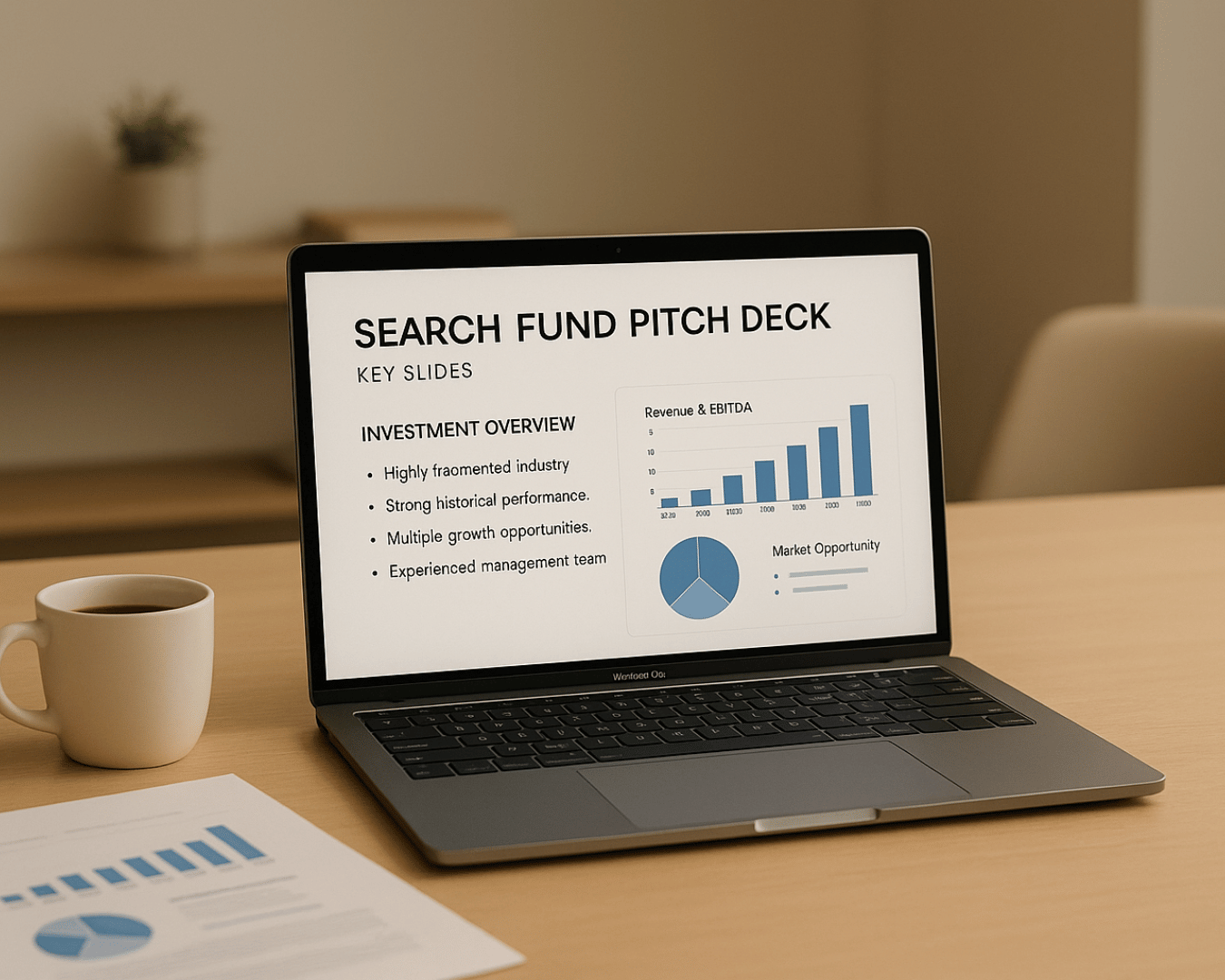Your small business valuation can shift dramatically due to key factors like financial performance, customer diversity, and market conditions. Unlike real estate, where value changes gradually, a single event - like landing a big contract or losing a key client - can significantly alter your company's worth.
Key Factors That Impact Valuation:
- Financial Health: Strong cash flow, steady profit margins, and manageable debt improve valuation. Erratic cash flow or excessive liabilities lower it.
- Customer Base: A diverse customer base reduces risk and boosts value, while overreliance on one client can hurt it.
- Revenue Consistency: Recurring income (e.g., subscriptions) is more appealing to buyers than one-time sales.
- Market Trends: Growing industries and favorable regulations enhance value; shrinking sectors or rising interest rates may lower it.
- Operational Strength: Clear processes, efficient systems, and a capable management team make your business more attractive.
- Intangible Assets: A strong brand and intellectual property, like patents or trademarks, can significantly increase perceived worth.
To maximize your valuation, focus on financial transparency, customer diversification, and creating predictable revenue streams. Regularly assess market conditions and invest in efficient operations and leadership. These steps not only safeguard your business’s worth but also position it for long-term growth.
Top 3 Methods of Valuation of Business to Avoid Losing Millions
Financial Performance: The Core of Business Value
When buyers evaluate a business, financial performance often tops their list of priorities. It’s a direct indicator of stability and the potential for future growth. Simply put, strong financial records can elevate your business's valuation, while weak ones might do the opposite.
Cash Flow and Profit Margins Matter Most
In the world of business valuations, cash flow is king. Buyers look for consistent, positive cash flow as a sign of dependable income generation. Even if your revenues are high, erratic cash flow can weaken your valuation. On the other hand, steady and reliable cash flow reassures buyers and increases your business's appeal.
Profit margins are another critical measure. They reflect how efficiently your business operates. Higher margins suggest strong pricing strategies, effective cost management, and competitive strengths. If your margins are growing - perhaps due to streamlined operations or cost-saving measures - it’s a good sign for your valuation. But shrinking margins can raise red flags, hinting at market challenges or potential management issues.
Having clean, audited financial statements is equally important. These records, especially when they clearly separate personal and business expenses, reduce buyer uncertainty and make your business more attractive. With strong cash flow and healthy margins in place, the next focus should be on managing liabilities.
How Debt and Liabilities Affect Value
The way your business handles debt plays a significant role in how buyers assess its financial health and growth prospects. Debt can be a powerful tool when used strategically, but excessive debt can be a red flag.
"A favorable debt-to-equity ratio communicates that your company is built on a solid foundation that can become a springboard for growth. Because you are not overleveraging your company, it can move agilely. It can adapt and weather economic downturns."
- Flynn & Company
When debt is used wisely - such as for investments in growth opportunities like expanding operations or boosting working capital - it reflects thoughtful financial planning and can enhance your valuation. This demonstrates that your business uses debt as a growth tool rather than a lifeline.
However, too much debt sends the opposite message. Overleveraging raises concerns about stability and adds risk for potential buyers. Excessive liabilities can make buyers question whether your business is prepared to handle economic challenges.
"The ability to optimize debt usage and integrate it into your financial structure can strongly impact your company's valuation. You want your company to be seen as one that uses debt as a tool for growth rather than a crutch when things don't go as planned."
- Flynn & Company
In asset-based valuation methods, liabilities directly reduce the business’s net worth. Every dollar of debt subtracts from the overall value of your assets.
The preferences of buyers also play a role. For instance, family offices, which often rely more on equity than debt for acquisitions, tend to favor businesses with lower debt levels. Private equity firms, by contrast, may be more comfortable with higher debt levels.
Rising interest rates add another layer of complexity. When borrowing becomes more expensive, buyers and competitors who depend on debt financing may be less willing to pay premium prices.
To strengthen your valuation, manage debt strategically. Keep financial records transparent, aim for a balanced debt-to-equity ratio, and ensure borrowed capital is used for growth. These practices showcase the kind of financial discipline that buyers value.
Customer Base and Revenue Patterns
A steady cash flow and healthy profit margins are critical for a business's value, but there's another key factor: a strong, well-balanced customer base. The structure of your customer base plays a huge role in determining your business's worth. Buyers carefully evaluate where your revenue comes from and how consistent it is before deciding how much they’re willing to pay.
Diversified vs. Concentrated Customer Base
When too much of your revenue depends on just a handful of customers, it can be a red flag for buyers. This is known as high customer concentration, and it makes your business vulnerable to sudden drops in value. According to SBA lending standards, no single customer should account for more than 10% of your total revenue to minimize this risk.
For example, if one major customer represents a large portion of your revenue, losing them could significantly harm your valuation. On the other hand, having a diversified customer base spreads out the risk. Buyers see this as a safer investment, which often leads to higher valuations.
| Factor | Diversified Customer Base | Concentrated Customer Base |
|---|---|---|
| Revenue Stability | High | Low |
| Risk Exposure | Low | High |
| Buyer Confidence | High | Low |
| Valuation Impact | Positive | Negative |
| Recovery from Customer Loss | Quick | Difficult |
Building a diverse customer base doesn’t happen overnight, but the payoff is worth it. Expanding into new markets, reaching different customer segments, or even broadening your geographic reach can create a more reliable revenue stream. Buyers value this kind of stability, and it directly boosts your business's appeal.
But customer diversity isn’t the only factor - predictable revenue streams are just as important.
Repeat Revenue Streams
Revenue that keeps coming in, like subscriptions or maintenance contracts, can significantly boost your business's valuation. Why? Predictable income reduces uncertainty for buyers, making them more willing to pay a premium.
Recurring revenue - whether from repeat orders, subscription models, or long-term contracts - signals long-term stability and value. For instance, contracts that secure income over several years add a layer of predictability that buyers love. Additionally, a loyal customer base that consistently renews contracts or increases spending further enhances your business's value.
Predictable revenue isn’t just about impressing buyers - it also makes financing easier. Most SBA lenders require a debt service coverage ratio of 1.25-1.5x based on past tax returns, which highlights the importance of steady cash flow. Businesses with reliable, recurring income are better positioned to secure loans, adding another layer of attractiveness for potential buyers.
In contrast, businesses relying on one-time or project-based revenue face more challenges. These revenue streams are harder to predict, raising concerns about future performance and, ultimately, lowering valuations.
Even small adjustments - like transitioning from one-time sales to subscription models or introducing maintenance contracts - can make a big difference. These changes create more dependable income streams, which not only improve your valuation but also make your business more appealing to buyers.
Market Conditions and Outside Forces
External factors play a big role in determining your business's value. Things like industry trends, economic changes, and new regulations can quickly alter what buyers expect. Knowing how these forces work can help you stay ahead of competitors.
Growing vs. Shrinking Industries
The direction your industry is heading can greatly influence your business's worth. Companies in growing industries often command higher valuations, while those in declining sectors may face lower multiples. However, being a standout in your niche can still drive up value, even in tougher markets. On the flip side, intense competition tends to push valuations down, whereas carving out a defensible niche can have the opposite effect.
Your industry and the overall economy are key to your future success and valuation. For instance, sectors like healthcare technology, cybersecurity, and renewable energy often enjoy higher valuation multiples. Meanwhile, traditional retail and certain manufacturing industries may face challenges that put downward pressure on their valuations.
Rules and Economic Changes
Beyond industry trends, external regulations and economic shifts can also reshape valuations. Changes in regulations or geopolitical events can have an immediate impact. Keeping an eye on upcoming changes and assessing how they might affect your business can help you plan for long-term stability and growth.
Understanding these market forces and regulatory shifts lays the groundwork for the operational and strategic adjustments discussed in the next section.
sbb-itb-a3ef7c1
Operations and Management Quality
While financial metrics and a growing customer base can impact your business's immediate value, robust operations and effective management are the backbone of long-term stability. A business that runs efficiently and doesn't depend heavily on the owner's daily involvement is far more attractive to potential buyers.
Clear Processes and Smart Use of Technology
Having well-documented processes is essential for easing buyer concerns. As Andersen in New Zealand wisely pointed out, "If 'only Sarah knows how that works,' that's a problem. Key processes should be documented and, ideally, transferable." Standard operating procedures (SOPs) for critical areas like sales, customer service, finance, and fulfillment highlight consistent, reliable performance that's not tied to the owner's presence.
Modern technology plays a significant role here. Tools like accounting software, CRM systems, and workflow automation can elevate your business's profile. For instance, a manufacturing company using a just-in-time inventory system was able to cut waste and lower inventory carrying costs, which directly improved its cash flow. Similarly, an optimized logistics system that reduces costs and shortens delivery times while improving customer satisfaction can enhance your company's valuation. On the flip side, outdated systems or reliance on manual processes can drag down your value. Investing in scalable solutions like ERP systems ensures your business can grow without requiring a complete overhaul.
But efficient processes alone aren't enough. A skilled management team is equally vital for sustaining and building value.
Management Team and Succession Plans
A strong management team complements efficient systems and protects your business's value. Heavy reliance on the owner can be a red flag for buyers. A clear succession plan helps avoid costly disruptions caused by knowledge or talent gaps. Without a capable team in place, buyers may see your business as a riskier investment.
To strengthen your management team, invest in formal training programs and establish clear incentive structures. Documenting key business processes not only empowers your team but also reduces the need for constant oversight. Additionally, having a well-thought-out contingency plan - one that's written, accessible, and communicated to your team - shows resilience and reassures buyers that your operations can run smoothly even in your absence.
Operational efficiency, backed by clear processes and a reliable management team, does more than just improve profit margins. It sends a strong signal that your business is well-managed and ready for growth. When valuers assess your company, they’ll look at whether it can seize opportunities and operate effectively without you steering the ship. In the end, strong systems and a capable team build confidence in your business's ability to thrive in the future.
Brand Value and Intellectual Property
While efficient operations and strong management lay the groundwork for a successful business, intangible assets can significantly sway its valuation. These less tangible elements, though harder to quantify than cash flow or physical assets, play a pivotal role in shaping how buyers perceive your business - whether as an ordinary commodity or a premium opportunity.
Brand Reputation and Customer Loyalty
A solid brand reputation is a cornerstone of your business's "Going Concern Value", which includes both tangible and intangible assets as part of an operational entity. A recognizable and respected brand signals market leadership, supports higher profit margins, and fosters a loyal customer base that provides steady revenue. In fact, a strong brand can drive revenue growth by 4% to 8% above your market segment.
To safeguard and grow your brand value, actively engage in monitoring customer feedback. Tools like internal surveys, customer experience programs, and client advisory boards can provide valuable insights. Additionally, implementing client referral programs can strengthen loyalty while expanding your customer base.
When it’s time to prepare for a sale, focus on crafting a compelling narrative that emphasizes what makes your business stand out. A well-defined brand story, paired with strong intellectual property, can secure your position as a premium investment option.
Patents and Proprietary Assets
Intellectual property, such as patents, trademarks, and proprietary technologies, can significantly elevate your business's valuation. Strategic buyers often view these assets as critical factors in their decision-making process.
For example, a single patent can add millions to a business's valuation - something automated valuation tools might not fully capture. Buyers are often willing to pay premiums for businesses that offer access to unique technologies or intellectual property, as these assets can create synergies and provide a competitive advantage. Moreover, patented or trademarked offerings that are difficult to replicate help shield your business from competitive threats. For investors, intellectual property is a key component of a company’s overall value.
To maximize the value of your intellectual property, ensure all patents and trademarks are properly filed, maintained, and documented. When preparing for valuation, highlight the strategic benefits your intellectual property brings, such as market share protection, technological superiority, or licensing opportunities.
Keep in mind that intangible assets like brand reputation and intellectual property require continuous attention and investment to maintain their value and impact.
Tools and Methods to Check and Improve Value
Keeping a close eye on your business's value and making strategic improvements is essential for long-term success. Modern tools and thoughtful strategies can help you track progress and identify areas for growth, complementing the financial and operational plans discussed earlier.
AI-Powered Valuation Tools
AI-based valuation platforms provide instant, data-driven insights by combining your financial data with real-time market trends and industry benchmarks. For example, Clearly Acquired offers a tool that updates valuations within minutes by securely connecting to your financial systems.
The real strength of these tools lies in their ability to provide ongoing insights. Instead of relying on a one-time valuation when you're ready to sell, you can consistently monitor how specific decisions impact your business's value over time. Many platforms also include benchmarking features, allowing you to compare your performance against industry standards and uncover opportunities for growth.
Ways to Protect and Increase Value
Once you’ve gained insights from valuation tools, the next step is to act on them. Here are some practical strategies to safeguard and grow your business’s value:
- Improve profitability by streamlining operations and managing expenses. Strong financial controls not only ensure accurate reporting but also protect against fraud.
- Diversify revenue streams to reduce risk. Aim to prevent any single customer from contributing more than 10% of your total revenue. This might mean targeting smaller clients or exploring untapped market segments.
- Build recurring revenue models like subscription services or long-term agreements to create a steady income stream.
- Reduce owner dependency by implementing efficient systems and documenting key processes. Invest in technology that enhances productivity and assemble a strong management team. Buyers often value businesses that can operate smoothly without the owner's direct involvement.
- Strengthen your market position by offering unique value propositions. This could mean leveraging proprietary technology, specialized expertise, or exceptional customer service. Additionally, fostering customer loyalty through transparency, personalized service, and effective communication can lead to repeat business and referrals.
- Use data-driven decision-making by tracking metrics like customer acquisition costs, lifetime value, and profit margins for each product line. These insights can guide resource allocation to areas with the highest potential for growth.
Regular professional assessments can also play a critical role. While AI tools provide ongoing updates, periodic reviews by seasoned business advisors can uncover additional opportunities for optimization. These experts can ensure that your contracts, documentation, and systems align with what potential buyers expect.
The secret to increasing your business's value lies in consistent effort. Small, steady improvements can add up over time, leading to substantial gains in your overall valuation.
Conclusion: Main Points for Better Business Value
Understanding the key factors that influence your business's valuation is essential for making strategic decisions that protect and enhance its worth. Five core areas stand out as crucial for any business owner aiming to maximize value.
Financial performance is the cornerstone of any solid valuation. Buyers prioritize consistent cash flow, stable earnings, and healthy profit margins. Accurate financial statements and clean books, along with a steady EBITDA, showcase your business's true earning potential and make it more appealing to potential buyers.
Customer diversity and revenue patterns play a major role in shaping deal outcomes. A well-diversified customer base, where no single client accounts for more than 10% of sales, reassures buyers by spreading risk. Additionally, recurring revenue streams demonstrate predictable income, further increasing your business's attractiveness.
Operational strength is another critical element. Your market position and operational effectiveness reflect how well your business can succeed without relying heavily on its owner. A capable leadership team, clear succession plans, and a motivated workforce all reduce dependency on any single individual. Efficiency in operations and adaptability to market changes further enhance your company's value.
Intangible assets, such as brand reputation and intellectual property, also add significant weight to your valuation. A strong brand and proprietary assets create competitive advantages that buyers are often willing to pay a premium for.
To maximize your business's value, it's vital to continuously monitor these areas and adapt to shifting market dynamics. Strengthening these value drivers ensures you're well-positioned to seize new opportunities and safeguard your business's future.
FAQs
How can diversifying my customer base boost my small business valuation?
A varied customer base plays a key role in boosting your small business's valuation. When no single client contributes more than 10-15% of your total revenue, your business is seen as less risky by potential buyers. This signals stability and reduces the reliance on any one customer.
To broaden your customer base, consider exploring new markets, reaching out to different customer groups, or introducing additional products or services that attract a wider audience. A well-rounded customer base not only enhances your business's value but also provides a safeguard against unexpected dips in revenue.
How can managing debt effectively improve my small business's valuation?
Managing debt wisely can play a big role in boosting your small business's valuation. By lowering financial risks and improving cash flow, you make your business more appealing to potential buyers or investors. A key metric to keep an eye on is your debt-to-equity ratio - it’s a snapshot of your financial stability. Showing a balanced ratio sends a message that your business is on solid financial ground.
Start by tackling high-interest debt first. Clearing these obligations frees up money that can be better spent on growing your business or handling day-to-day operations. At the same time, think carefully about how your debt is structured. For instance, opting for long-term loans to fund major investments can ease repayment pressure compared to short-term loans with tighter deadlines.
Having a clear, actionable plan to manage and reduce debt not only strengthens your financial position but also builds trust with potential buyers. It’s a move that can directly enhance your business's valuation.
How do intangible assets like brand reputation and intellectual property affect my business's valuation?
Intangible assets - like brand reputation and intellectual property (IP) - are key factors in shaping your business's overall value. These assets represent the unique aspects of your company that can't be easily copied, making them especially appealing to buyers or investors.
A well-regarded brand can foster customer loyalty, ensure steady revenue, and strengthen your standing in the market, all of which contribute to a higher valuation. On the other hand, intellectual property - whether it's patents, trademarks, or proprietary technologies - offers competitive edges and can generate reliable, long-term income, further boosting your business's worth.
By safeguarding and building upon these intangible assets, you're not just maintaining your company's value - you’re also making it a standout choice in a competitive marketplace.





%20%20Process%2C%20Valuation%20%26%20Legal%20Checklist.png)

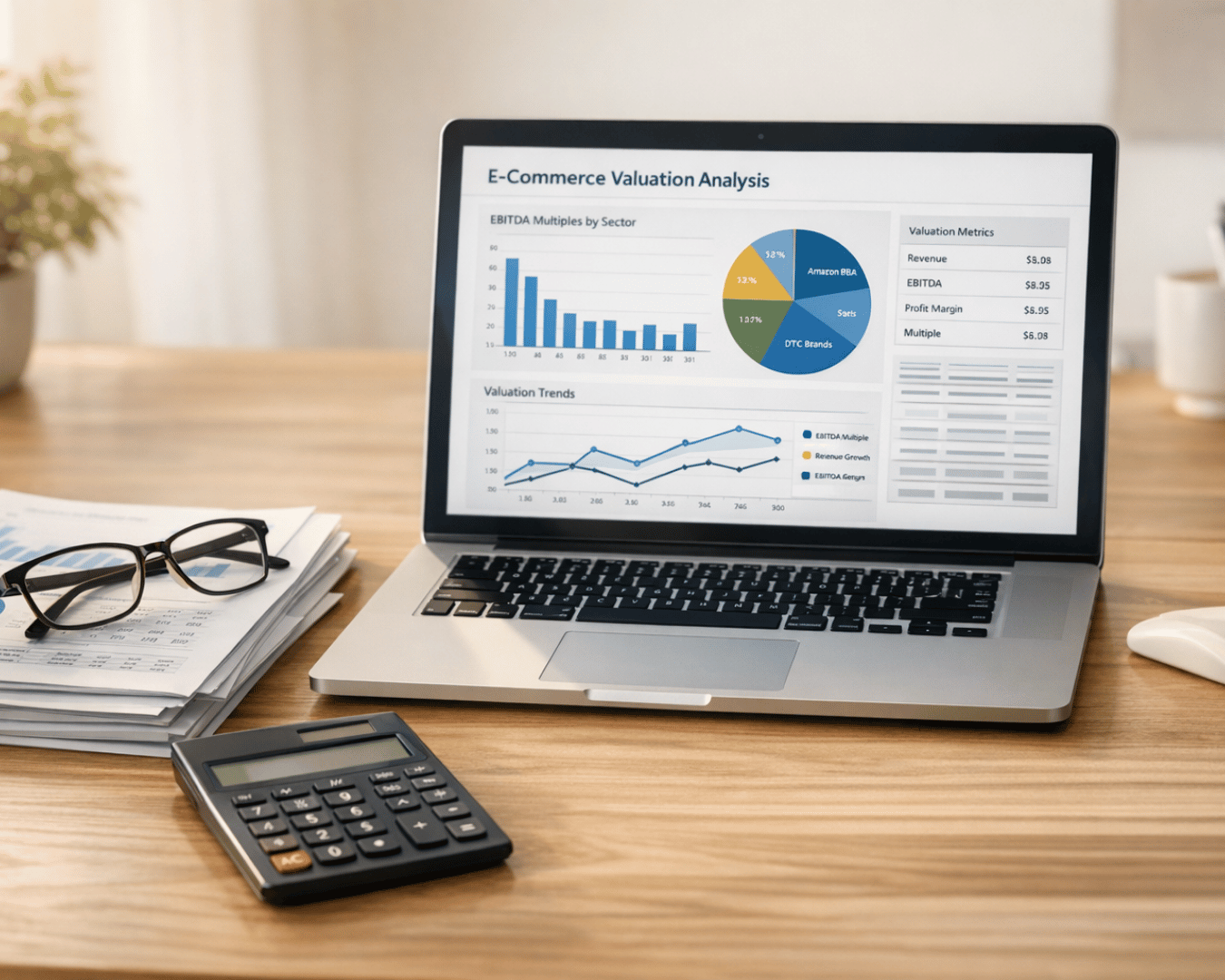









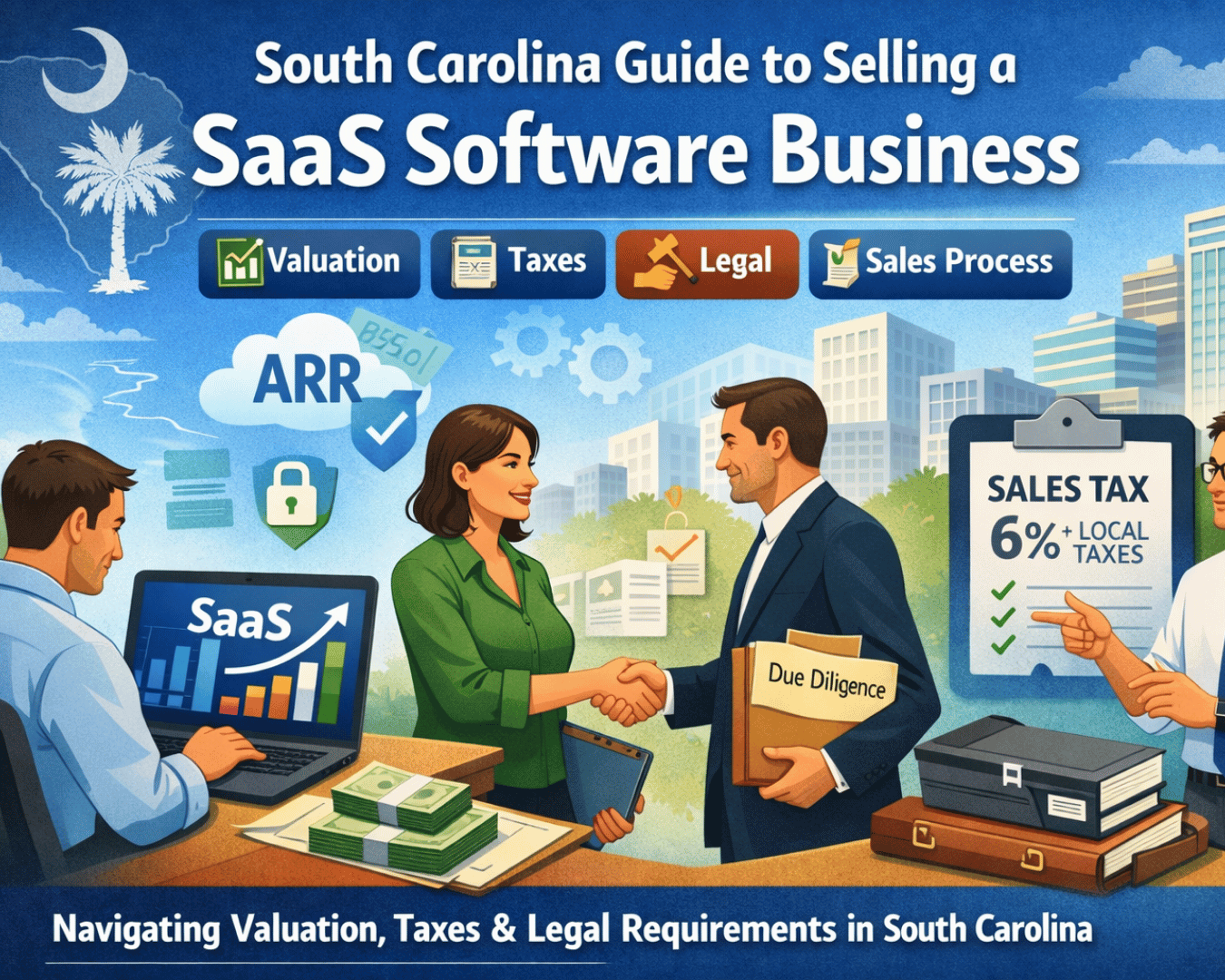







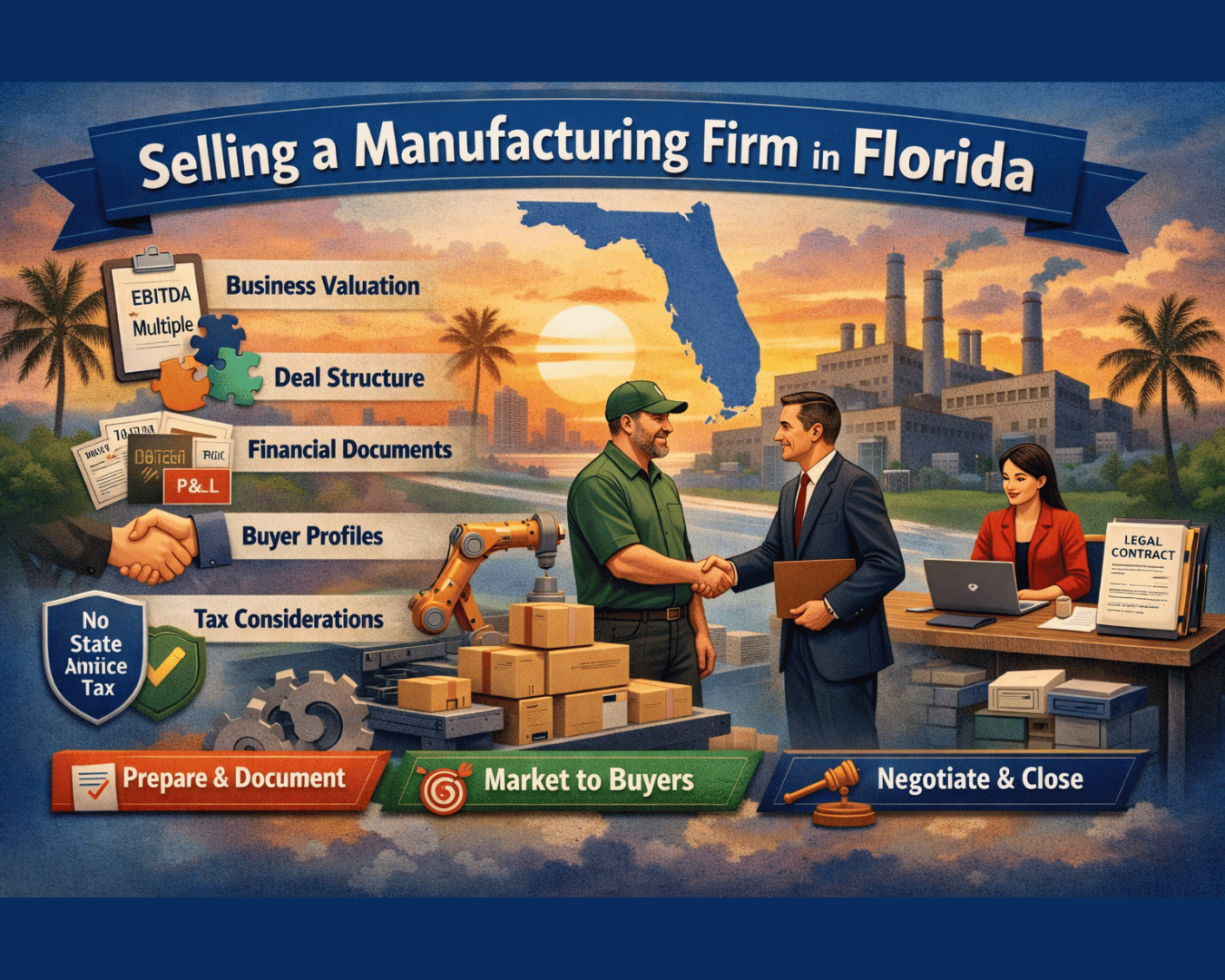
%20in%20a%20%2420M%20Sale..png)
%20vs.%20Conventional%20Loans%20for%20business%20acquisition.png)






















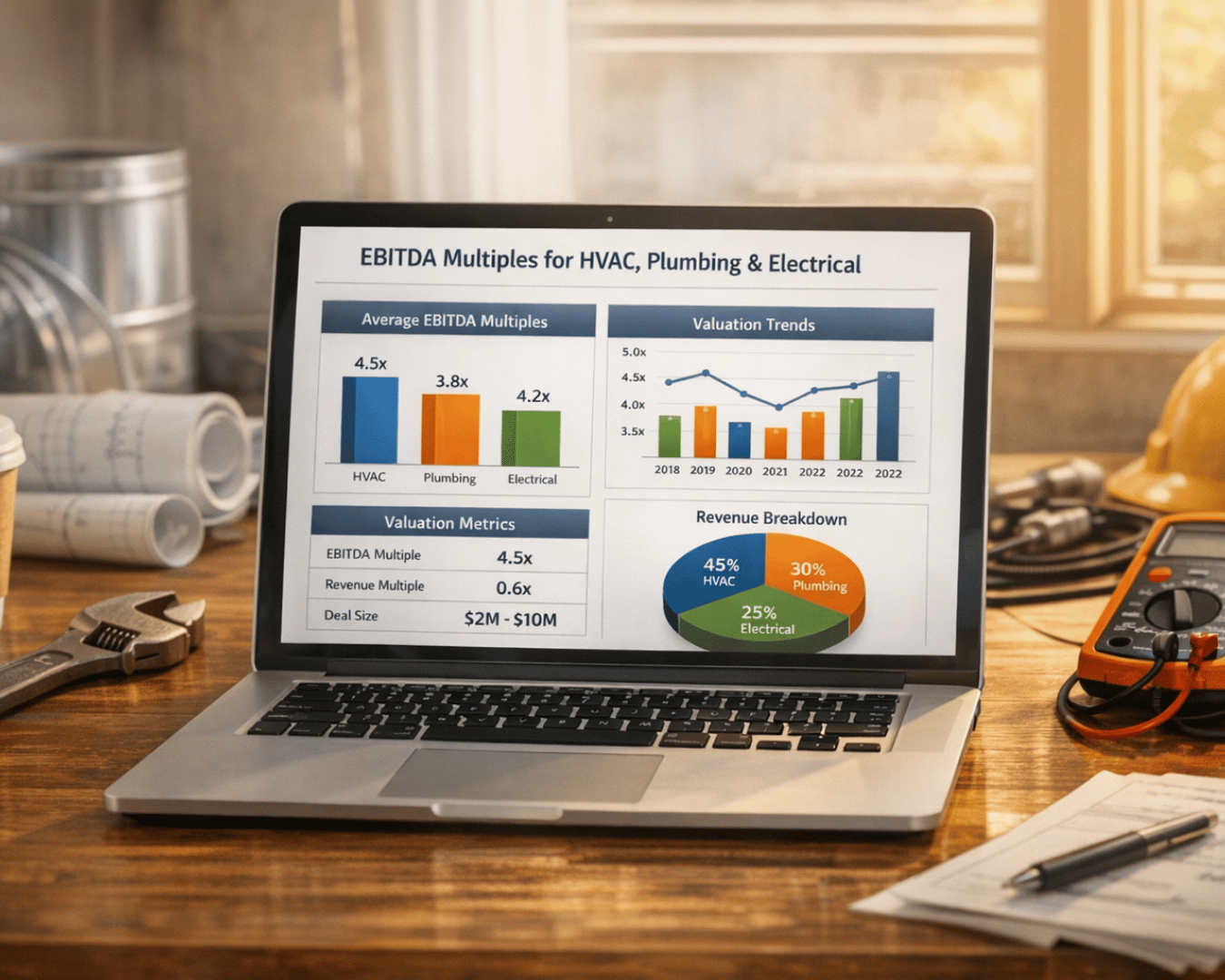
.png)


.png)
.png)

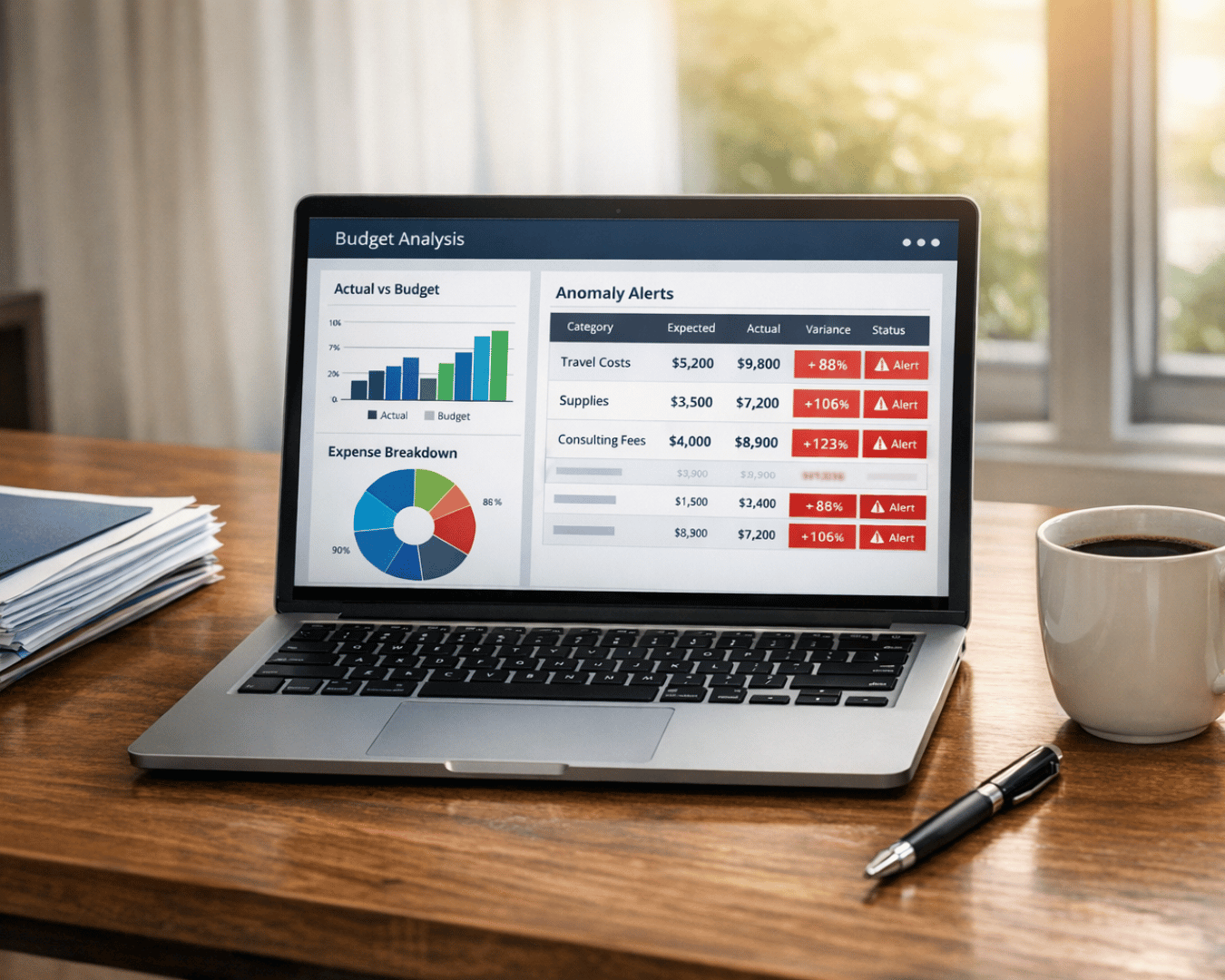

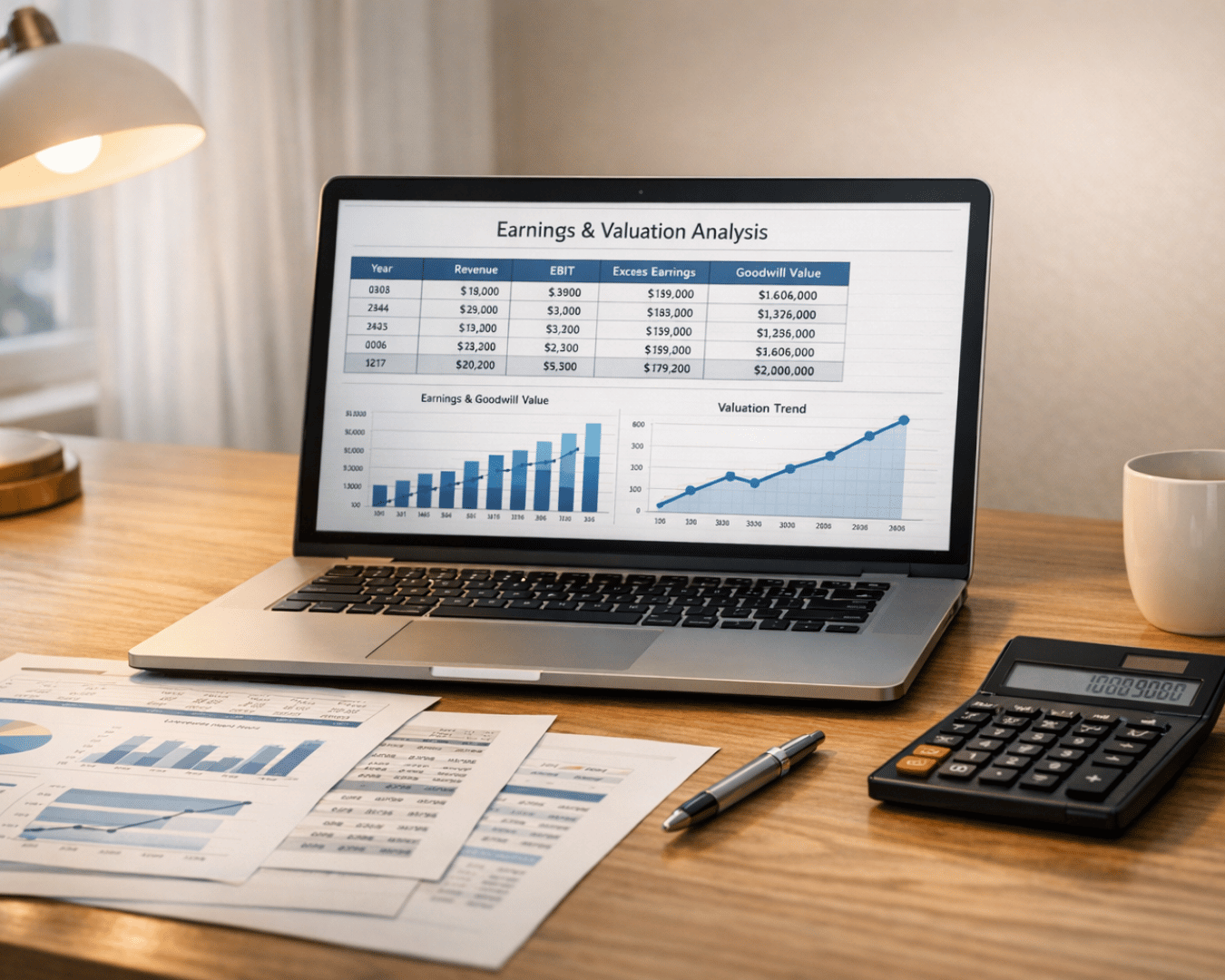








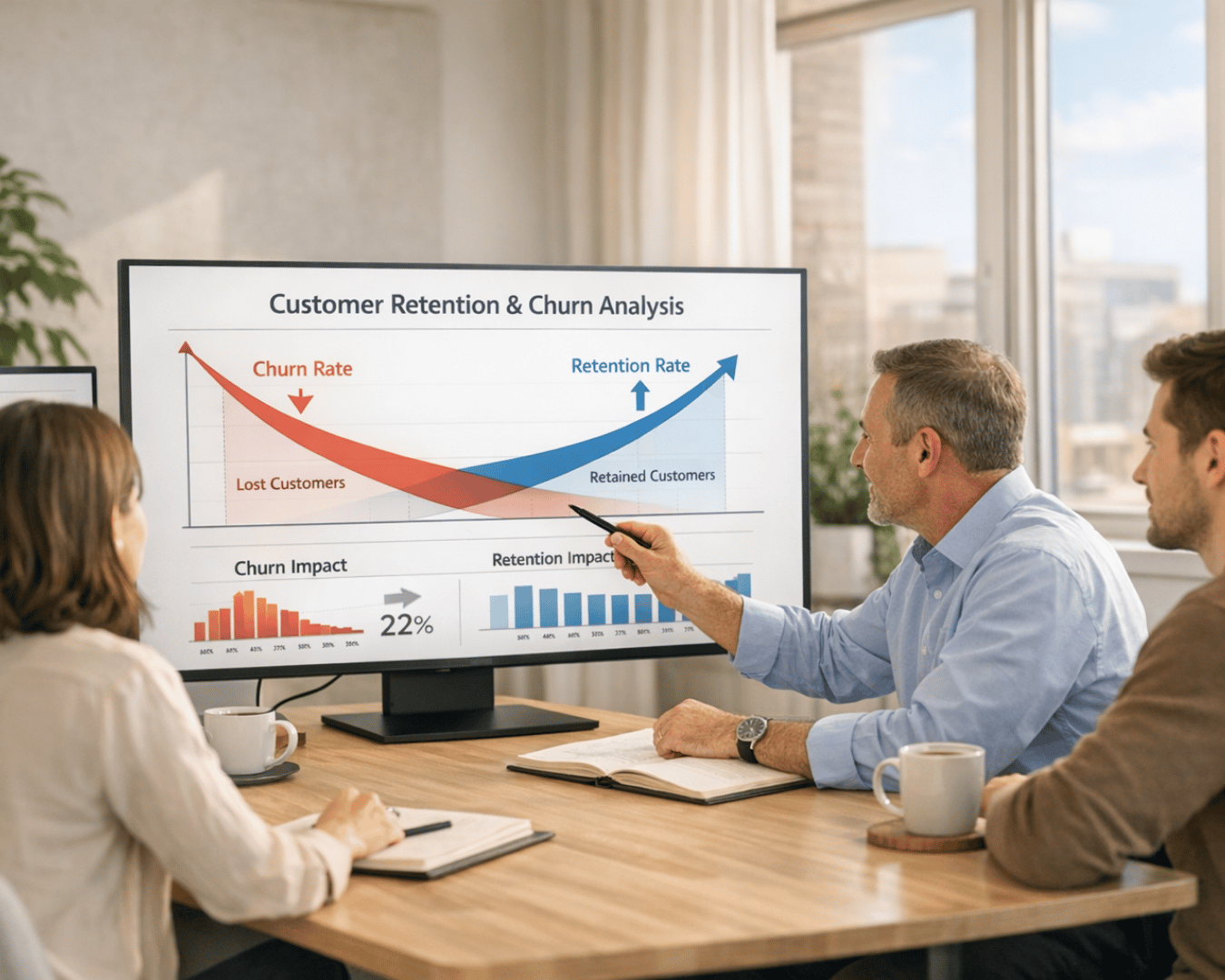
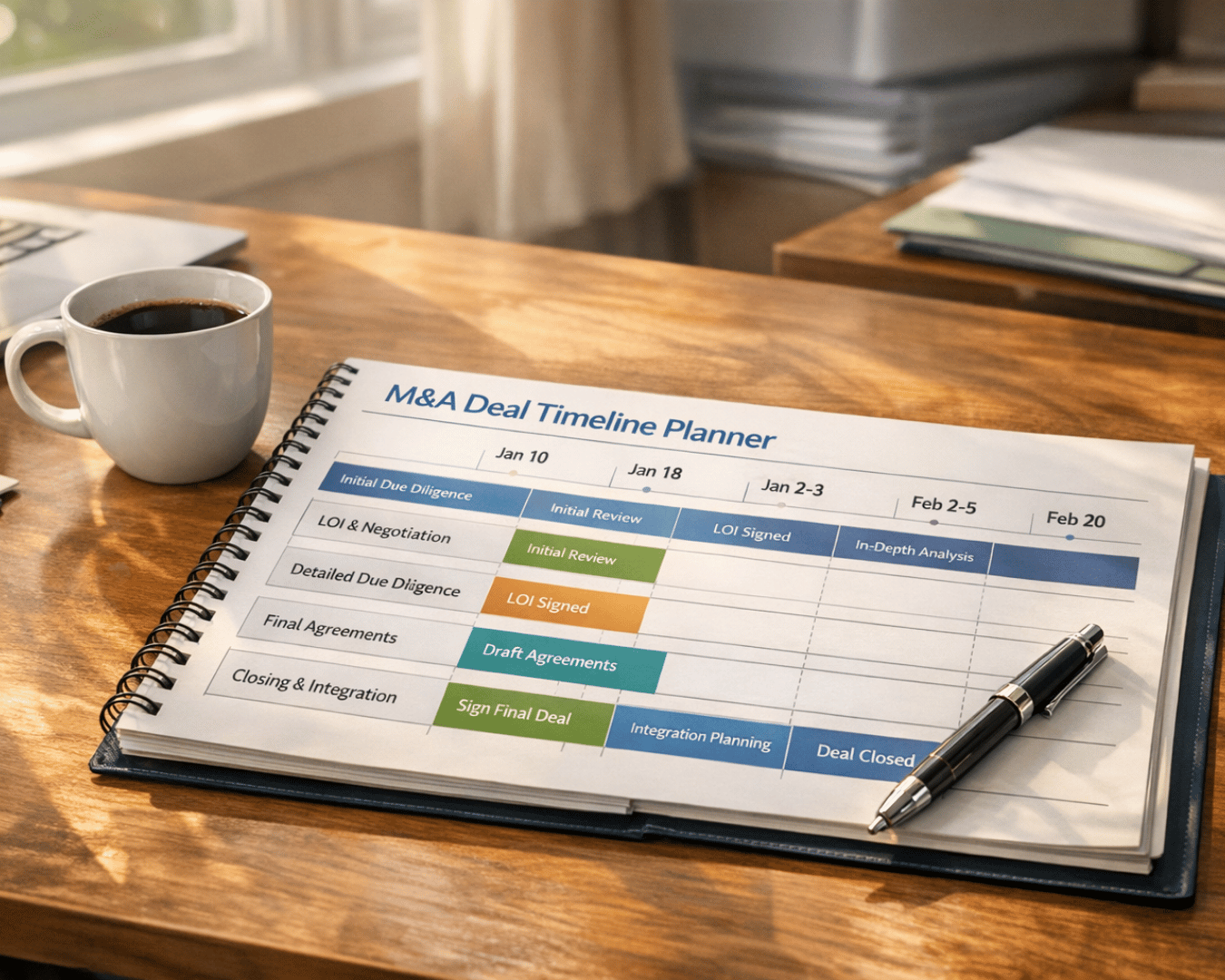









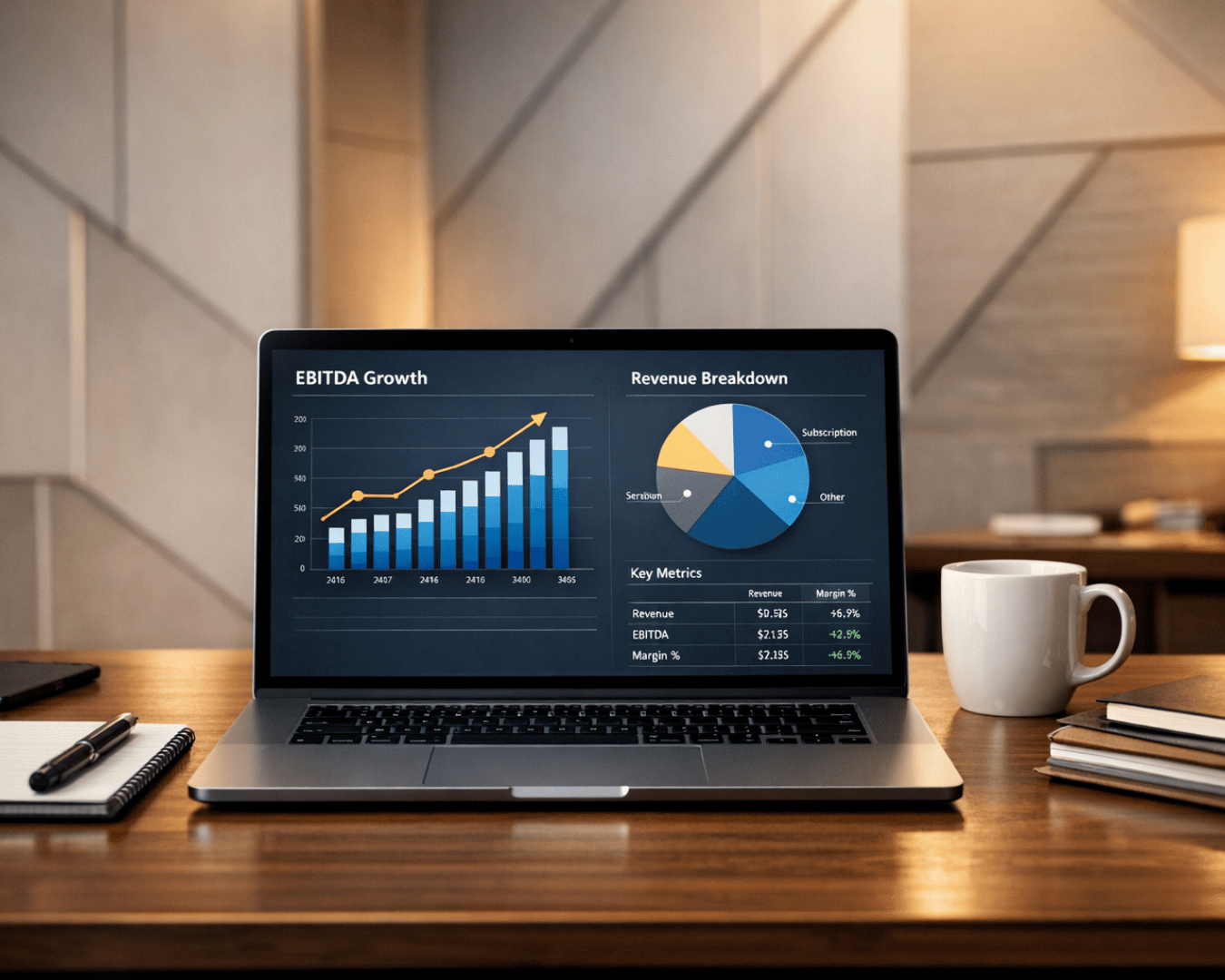

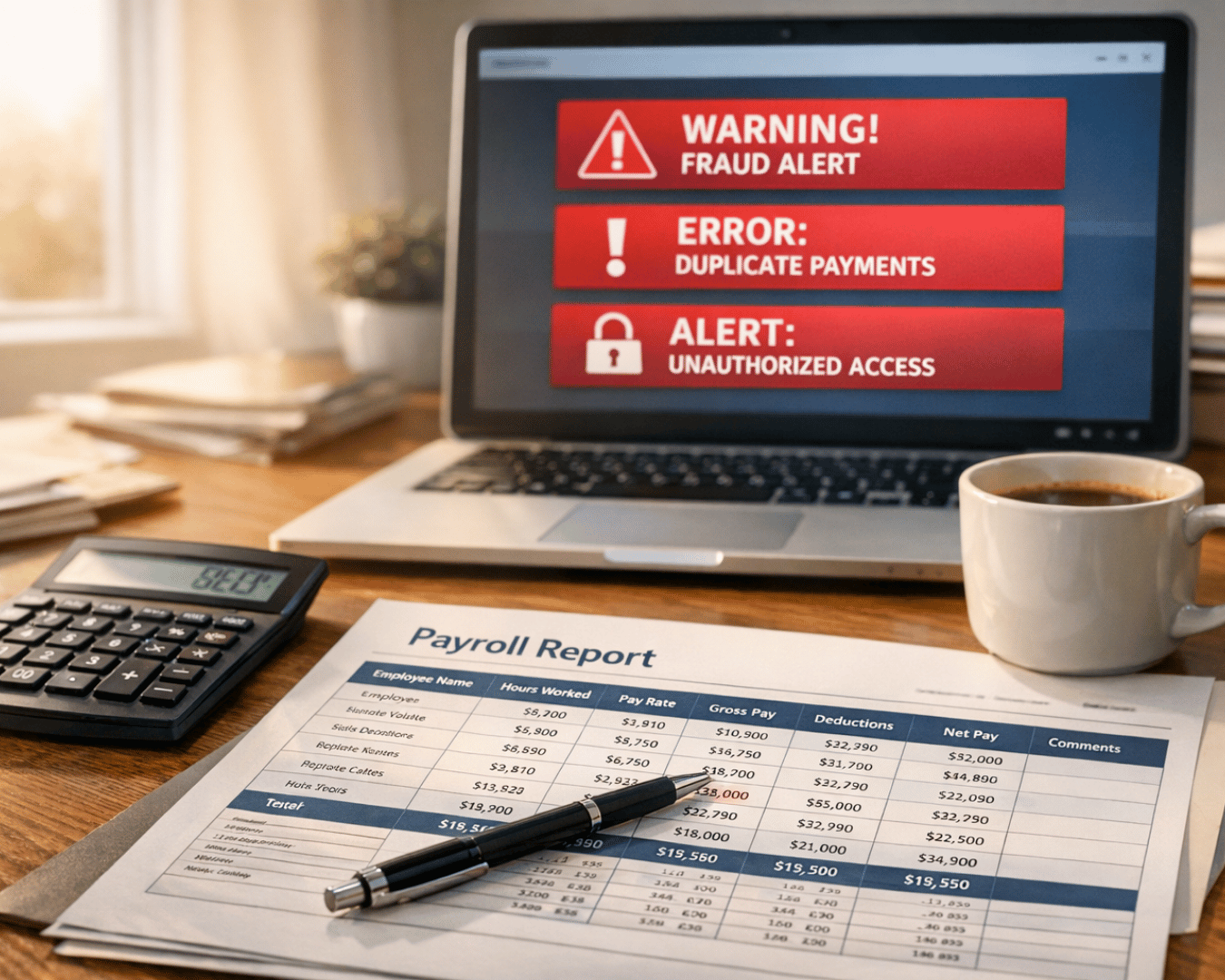








.png)
